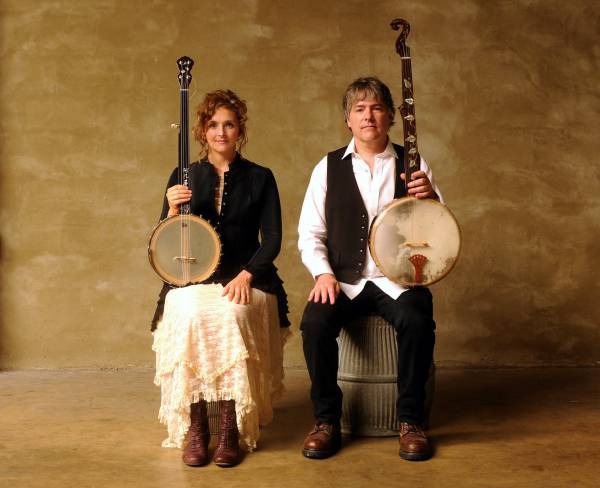City Recital Hall, August 15
8.5 stars

Usually with anything as sweet as Abigail Washburn’s voice have to unwrap it, first. And if the thought of two banjos sours the idea, she and Bela Fleck could probably strum a pair of shoelaces and warm people’s hearts.
He may be the famed, genre-crossing, multi-Grammy-winning virtuoso who has redefined the banjo’s potential, but ultimately this concert threw the spotlight more on to Washburn. As superb as the instrumentals were it was her singing and the chemistry between this husband-and-wife team (who tour with their three-year-old son in tow) that made the performance so intimate. In fact just as good radio speaks to each listener individually rather than to an amorphous mass, this was like Washburn and Fleck had wandered into your living room, plonked themselves down on the couch, and started a-pickin’ and a-singin’ just for you.
Their shared repertoire swayed like a hammock under the broad tree of Americana, with bluegrass, blues and gospel as knots in the wood. Whenever the performance strayed anywhere near the edge of becoming a little monochromatic, Washburn stunned us with something completely different, such as a searing a cappella reading of Sarah Ogan Gunning’s Come All Ye Coalminers, a socialist anthem from the Great Depression to curl the hair of GOP elders. That came after a traditional Chinese song (sung in Mandarin) and before one of her own called Shotgun Blues that was dramatic, satirical, percussive and wryly black-humoured all at once.
While she played her mellower, open-backed banjo with her fingers to create a remarkably silken sound, Fleck used fingerpicks on his resonator model to more strident effect. His playing was at its most harp-like or kora-like on his New South Africa (for Nelson Mandela), and at its most lyrical on What Are They Doing In Heaven Today?, which had Washburn’s voice arching up to the heavens. They finished with an entirely acoustic encore (Fleck’s banjo sounding magnificent), reinforcing that intimate, living-room illusion.